Citywest, Saggart, Rathcoole, Newcastle
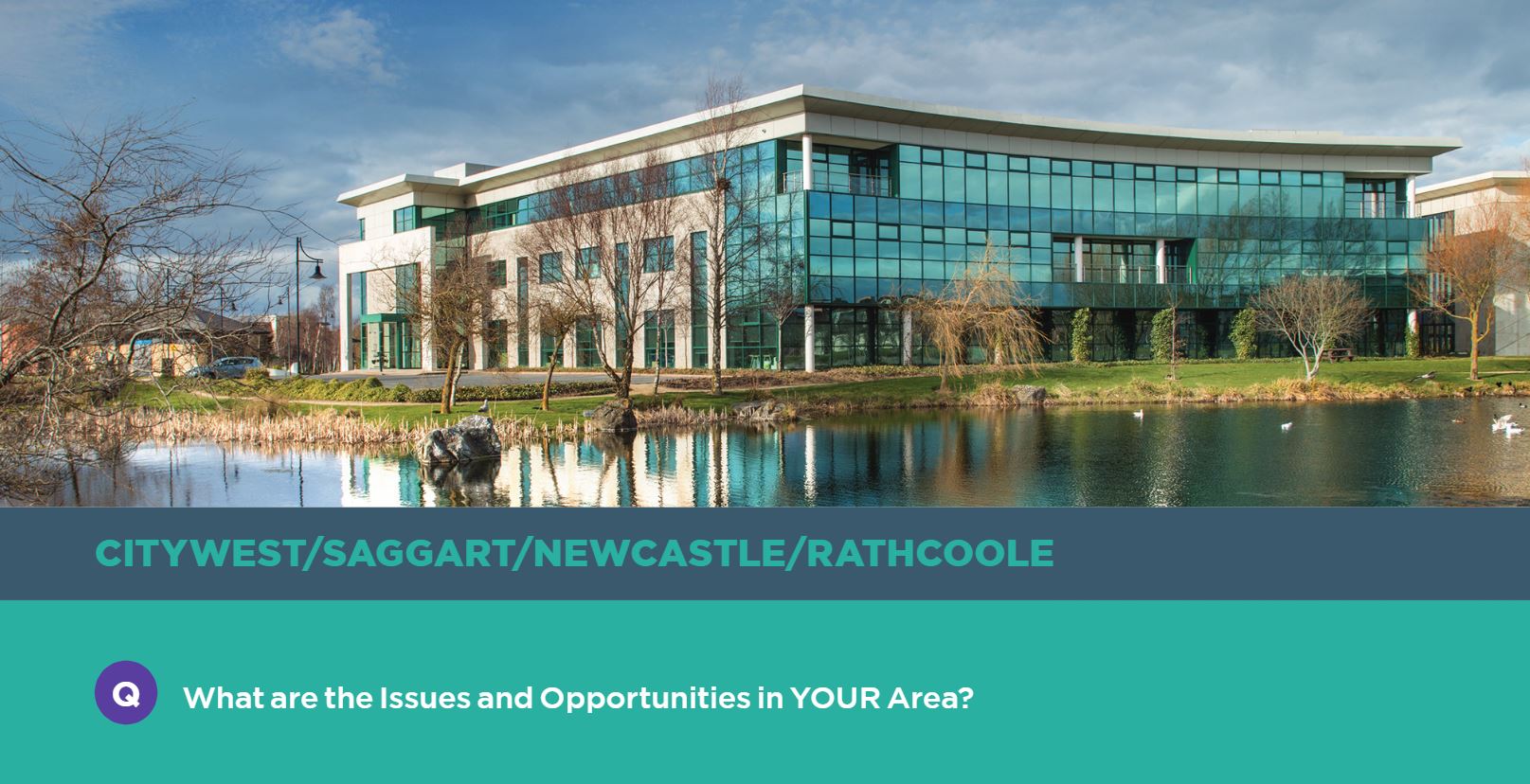
Introduction & Context
Built Environment & Placemaking
Climate Action & Energy
Population Growth & Housing
Sustainable Movement
Community Services
Economic Development
Natural Heritage & Biodiversity
Infrastructure & Utilities
Introduction & Context
This Neighbourhood Area represents the urban fringe of the County. Extending from the employment and residential mix of Citywest and Fortunestown, the neighbourhood expands west to the 3 historic villages of Newcastle, Rathcoole and Saggart located approximately 7 kilometres west of Tallaght and 16 km from Dublin City Centre.
While intrinsically connected, these bustling areas each have a distinctive character with established and emerging neighbourhoods. Beyond these centres are rural agricultural lands with pockets of housing settlements and communities. The administrative area of Kildare County Council and the Grand Canal generally provide the western boundary of the area. Public transport within this area is supported by the Saggart Luas Red Line, while the villages are served by Dublin Bus. The area also has direct access to the M7.
This Neighbourhood is distinct, offering either a place to live and work in the new urban environment or a more rural environment within the historic villages. The villages and new urban areas benefit from having facilities and amenities at their doorstep. Rathcoole Park provides a central public open space either side of Rathcoole and Saggart.
Outside the villages, Citywest Shopping Centre and Avoca provide local level access to retail and service facilities for the area. There is significant employment at Citywest Business Campus and at the various business parks at Greenogue and around Baldonnell. Casement Aerodrome, a military facility home to the Irish Aer Corps, also provides employment within this area.
Built Environment & Place Making
Key to providing great places in which to live will be striking a balance between the delivery of a compact pattern of development and maintaining our sense of the historic character of our towns and villages. The delivery of increased density will have to be matched with high-quality design, public realm and appropriate street frontage.
The successful delivery of such measures within this neighbourhood will require a mix of uses, connections to sustainable transportation and infrastructure, a joined-up approach to community
planning and a strategic vision which includes a greater emphasis on placemaking. The new urban area at Fortunestown/Citywest will create higher density developments with new urban plazas adjacent to Luas stops and strong street frontage. An element of mixed use will help create vibrant spaces.
Climate Action & Energy
Future development within this neighbourhood will aim to reduce the impacts of climate change at local level through settlement and travel patterns, efficient energy use and the protection of green infrastructure. The Development Plan will facilitate an increase in access to existing and future sustainable transport routes. The integration of land use and transport in a sustainable way will help to reduce carbon emissions by avoiding the need to travel by car.
Population Growth & Housing
National and Regional planning policy emphasises compact growth in the Dublin Metropolitan Area of which South Dublin is a part. Compact growth must be accompanied by an emphasis on quality placemaking and the development of attractive places supported by existing and planned transport infrastructure.
At a local level the challenge will be to facilitate increased population and housing through compact growth while protecting and enhancing existing amenities, community, environmental and physical infrastructure.
In implementing government policy for compact growth, the Fortunestown area located along the Luas Red line, between Citywest and Saggart, has experienced a growth in homes greater than was anticipated in the Fortunestown Local Area Plan. The percentage of apartments in this neighbourhood will rise as Fortunestown is built out and more mixed type housing is delivered in the villages.
.gif)
Sustainable Movement
The eastern part of the neighbourhood is served by the Luas Red Line Stops: Saggart, Fortunestown and Citywest Campus with links to Tallaght, Dublin City Centre & Docklands. National and Regional Transport policy emphasises the need to reduce the demand on private travel in favour of public transport, cycling and walking. CSO 2016 data shows that 81% of residents in this area journey time to work is under 1 hour.
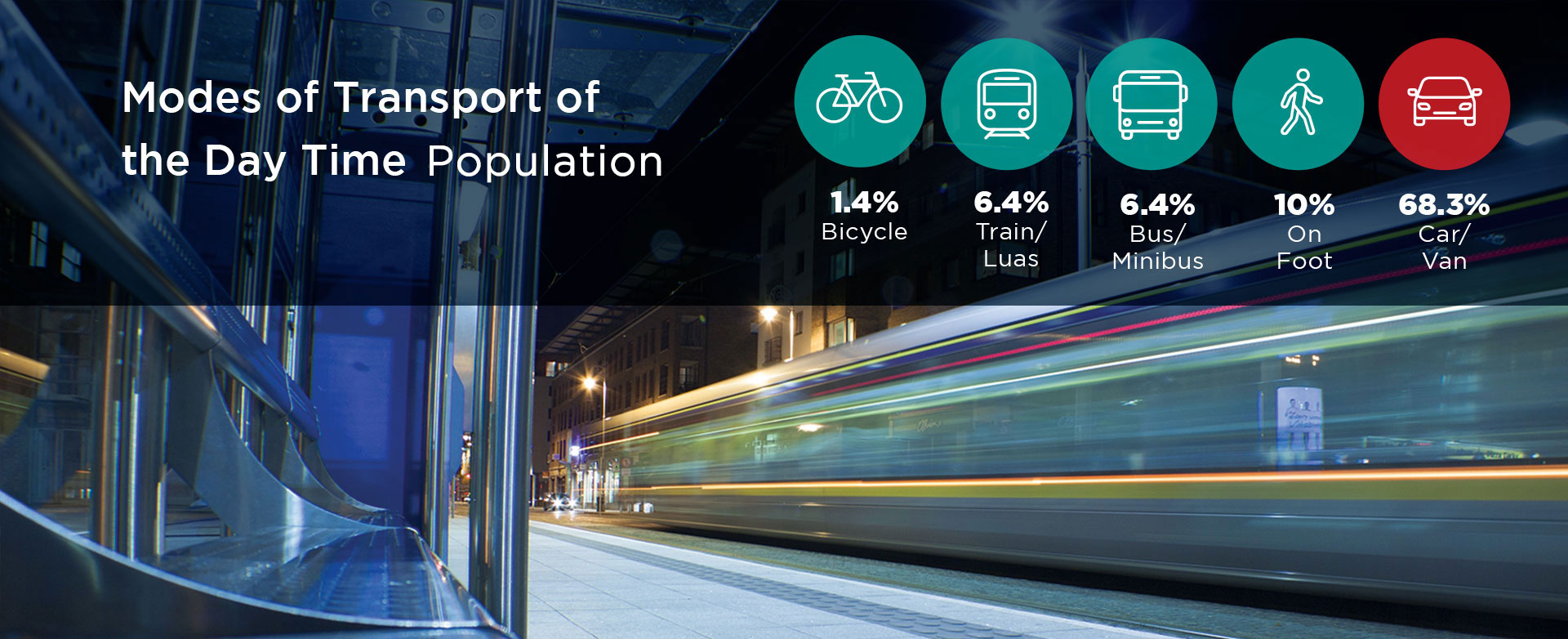
Services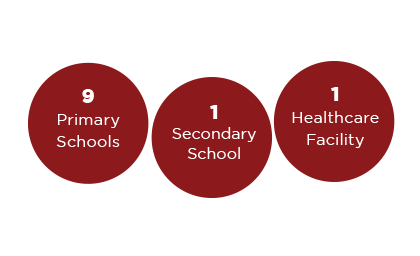
Sustainable neighbourhoods are supported by a range of social & community facilities that are fit for purpose, accessible and adaptable now and into the future. The Development Plan presents an opportunity to assess provision of services in Saggart, Citywest, Newcastle, Rathcoole, Neighbourhood area and build on existing essential assets including: Carrigmore Green park and Citywest playground, St. Finian’s Community Centre, Rathcoole Regional Park, Rathcoole Community Centre and the planned Saggart Community Centre and initial phases of Taobh Chnoic Park under the direction of the Newcastle Local Area Plan.
As part of the Development Plan process, A Community Infrastructure Audit (CIA) will be carried out in your neighbourhood to assess existing and plan for future facilities in a strategic and evidenced based manner.
Economic Development
The area is well connected in relation to national roads. The business parks around Baldonnel (Casement) aerodrome form an economic cluster which interacts with Grange Castle to the north. Mixed employment type is supported through the various business parks at Baldonnell, Kingswood, Greenogue, Magna and Citywest Business Campus, convention centre and golf course.
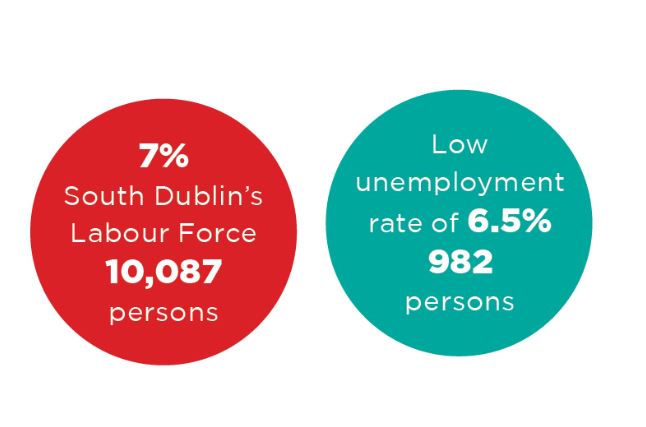 The neighbourhood is also supported by a network of retail shops comprising District Centres, Neighbourhood Centres and Local Centres. The aim of the plan will be to enhance and develop these centres in accordance with the principles of good urban design and sustainable development to ensure efficient use of land in our town centres, to achieve development densities to support vibrant, compact, walkable places that prioritise pedestrian movement.
The neighbourhood is also supported by a network of retail shops comprising District Centres, Neighbourhood Centres and Local Centres. The aim of the plan will be to enhance and develop these centres in accordance with the principles of good urban design and sustainable development to ensure efficient use of land in our town centres, to achieve development densities to support vibrant, compact, walkable places that prioritise pedestrian movement.
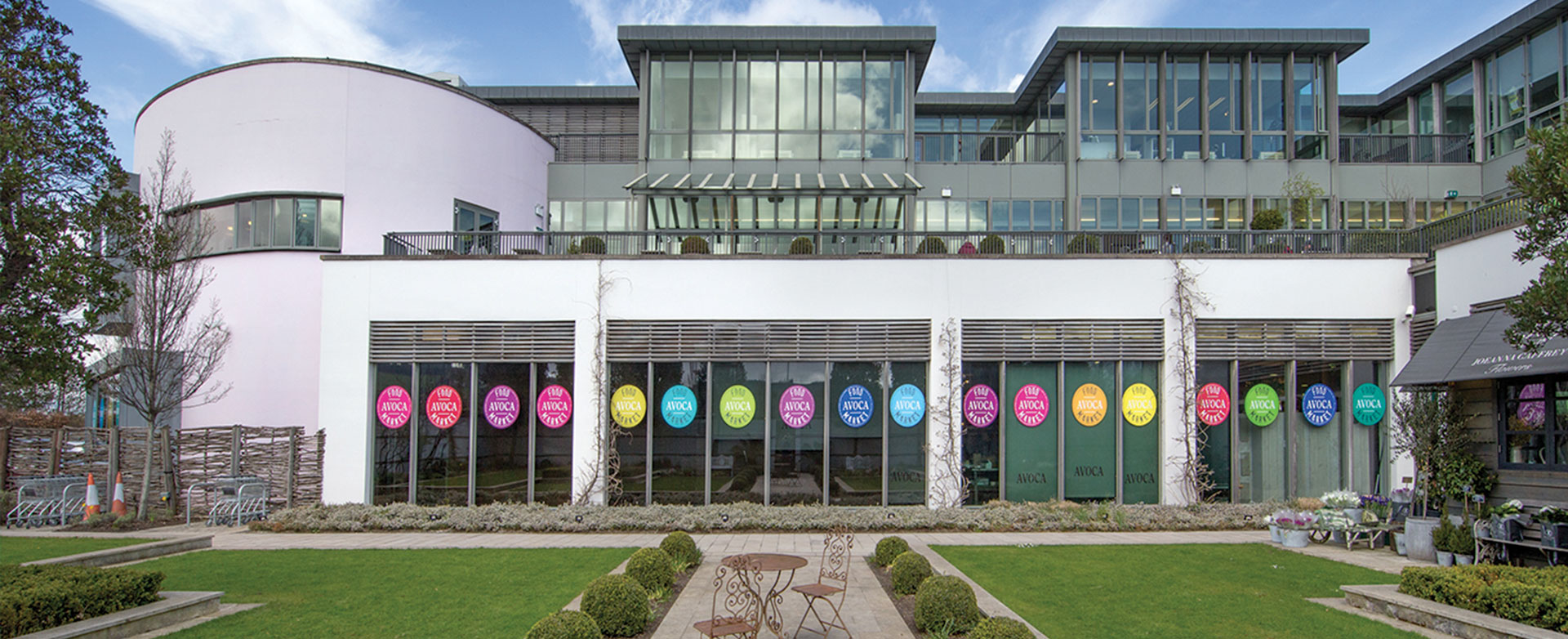
Natural Heritage & Biodiversity
The neighbourhood has a landscape character described as the ‘Newcastle Lowlands’ and the ‘Athgoe and Saggart Hills’ and is identified as an area under strong urban influence for housing. The Grand Canal is a proposed Natural Heritage Area located to the north-west boundary of the neighbourhood. Slade of Saggart and Crooksling Glen are also proposed for Natural Heritage designation. Slade valley comprises both a river valley (the Slade) with steep sides covered with planted trees such as Beech (Fagus sylvatica), Ash (Fraxinus excelsior), Oak (Quercus spp.) and Birch (Betula spp.), as well as well-developed ground flora. Hedgerows, many of which provide important ecological connections and are also historically significant are under threat in this area.
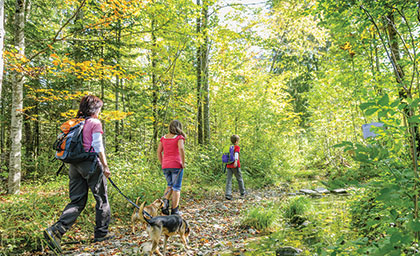
A Green Infrastructure (GI) Strategy will be developed to inform the Plan on the best way to develop this natural network and protect our biodiversity while providing for recreational opportunity.
Built Heritage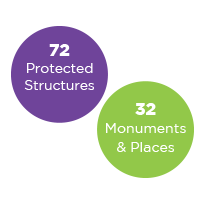
The neighbourhood contains the historic villages of Saggart, Rathcoole and Newcastle. Saggart Village contains a number of key protected structures which provide links to the development of the village and its origins and there are a number of modest vernacular structures typical of a rural village setting. Rathcoole and Newcastle are designated as Architectural Conservation Areas.
New development will need to respect the historic built environment, a key component of the neighbourhood identity / placemaking and therefore it is essential to recognise, protect, maintain and enhance these attributes now and into the future.
Infrastructure & Utilities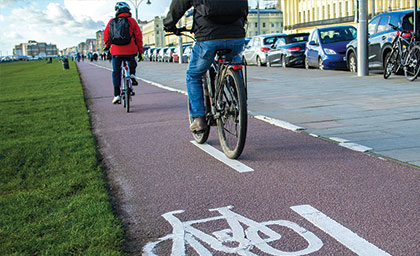
We can create efficiencies by targeting investment through greater alignment of land use and infrastructure. In this neighbourhood, higher residential densities are being achieved with the investment in public transport in the extension of the LUAS to Fortunestown/Saggart. This helps to mitigate against continued urban sprawl and reduce our carbon footprint.
Uisce Éireann is constructing c.7 km of large diameter trunk water mains linking the Leixlip treatment plant with the existing water storage reservoirs at Peamount and Saggart. This will increase the ability to distribute treated drinking water for residents and businesses in South Dublin and beyond and increase the security of the water supply. Upgrading of pumping stations for sewerage will need to align with population increases where necessary. The potential for improving the provision of renewable energy at a local level can be explored as part of the Development Plan process.
Back to the Top